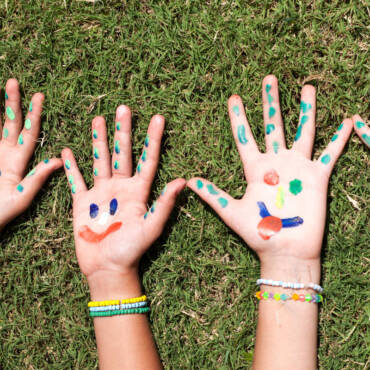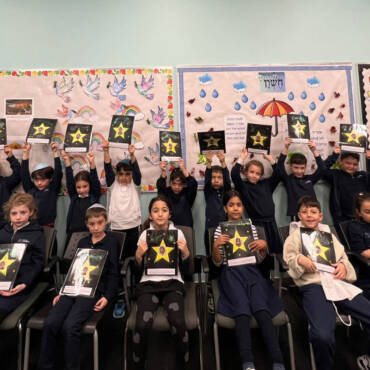When we think of success in school, it’s tempting to focus on test scores, reading levels, or how quickly a child memorizes multiplication tables. But at Tamim Academy, we believe that success is far more holistic. It begins not just with what our students know, but with how they feel about themselves, their learning journey, and the people around them.
That’s why Social-Emotional Learning (SEL) is at the core of our approach. It’s not a side subject or a bonus program—it’s embedded into every corner of school life. And as we settle into the rhythm of the school year, we start to see the powerful impact that SEL has—not only on our students’ well-being but on their academic growth, spiritual development, and sense of self.
What Is Social-Emotional Learning?
Social-Emotional Learning refers to the development of five key competencies:
- Self-awareness – understanding one’s emotions, values, and strengths
- Self-regulation – managing emotions and behaviours constructively
- Social awareness – showing empathy and understanding others
- Relationship skills – communicating clearly, listening, and resolving conflict
- Responsible decision-making – making ethical and constructive choices
At Tamim, these competencies are not taught in isolation. They’re lived daily, guided by both Jewish values and developmental best practices.
October: A Turning Point in Emotional Growth
In the first weeks of school, children are adjusting – testing boundaries, finding their place, getting used to new routines. But by October/November, the energy begins to shift. Students are more settled. They begin to take emotional risks, asking questions in front of peers, working through conflict, showing vulnerability in the learning process.
This is when true growth begins.
A few things we start to notice:
- A child asks for help without embarassment.
- Another navigates a disagreement on the playground without adult intervention.
- A student who was too shy to speak up in September now shares confidently during tefillah.
These may seem like small moments, but they are monumental. They are signs that children feel safe, empowered, and connected—the building blocks for every other kind of learning.
Rooted in Jewish Wisdom
At Tamim, our approach to SEL is uniquely Jewish. It’s rooted in timeless principles that have guided our people for generations.
- B’tzelem Elokim: Every child is made in the image of G-d. We treat every student with inherent dignity, and we teach them to see that same divine spark in one another.
- Teshuvah: Mistakes are not failures, they are opportunities to return, reflect, and grow. When a student says something hurtful or makes a poor choice, we guide them through a restorative process that’s compassionate but accountable.
- Shalom Bayit: Creating peace within the classroom community is an ongoing value. Our teachers model respectful dialogue, active listening, and problem-solving rooted in empathy.
- Kavod: Respect isn’t just about manners—it’s about honouring others, ourselves, and the learning process itself.
In short, our SEL work is not a modern trend—it’s an expression of our Jewish moral and spiritual DNA.
What SEL Looks Like at Tamim
So how do we actually embed SEL in the school day?
Here are a few ways:
- Morning Tefillah as Grounding Practice
Each day begins with prayer; but not as ritual alone. Tefillah becomes a moment of mindfulness, intention-setting, and gratitude. Children learn to identify what they’re feeling and bring those emotions into a space of connection with Hashem.
- Responsive Class Discussions
Whether we’re exploring a parsha, a science concept, or a storybook, our teachers encourage students to reflect on their feelings, ask questions, and relate the material to their own experiences. Emotional literacy is woven into academic content.
- Conflict Resolution with Guidance
When conflicts arise over sharing, group work, or misunderstandings, teachers facilitate structured conversations that empower students to voice their feelings, take responsibility, and repair relationships.
- Reflection Journals and Gratitude Practices
Students are encouraged to write or draw about moments of challenge, pride, or growth. Many classes include a weekly gratitude circle, where children share one thing they’re thankful for, helping rewire their brains toward positivity.
The Impact: Confidence, Curiosity, and Compassion
Children who are emotionally supported become more confident learners. When a child believes their voice matters, they’re more likely to:
- Participate in class
- Take academic risks
- Persist through challenges
- Show leadership in group settings
We’ve seen students transform over the course of a year, not just in reading comprehension or math scores, but in how they carry themselves. They become more self-aware, more connected to others, and more aligned with their own values.
And because our SEL approach is consistent across subjects and grades, students build these skills year after year, laying a strong foundation for middle school, high school, and beyond.
Partnering with Parents
We know that SEL doesn’t stop at the classroom door. That’s why we see parents as partners in this work.
We encourage families to:
- Use shared language around emotions and middot at home
- Reinforce growth mindset messages (“You don’t know it yet“)
- Celebrate character growth as much as academic success
When children receive the same messages from both school and home, the results are profound.
A Tamim Child Is a Whole Child
At Tamim Academy, our mission is not just to prepare students for academic success; it’s to raise curious, kind, emotionally intelligent Jewish human beings. We believe that the most important learning happens not just in the mind, but in the heart.
And as we move through the school year, we are reminded that the true markers of success are not only found on report cards—but in how a child treats a classmate, comforts a friend, advocates for themselves, and walks through the world with quiet confidence and joy.



